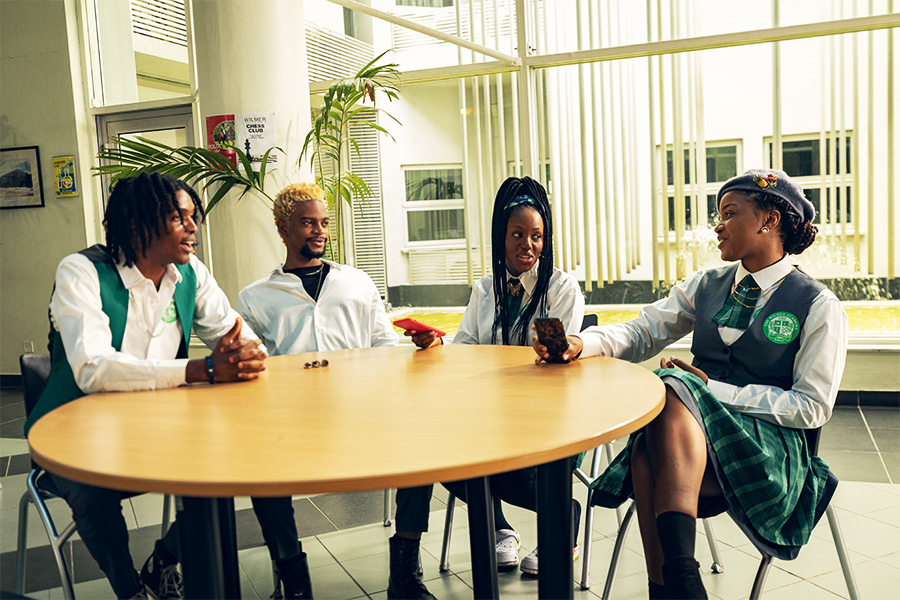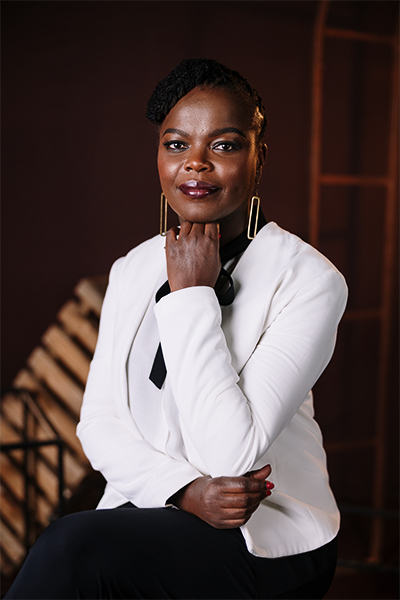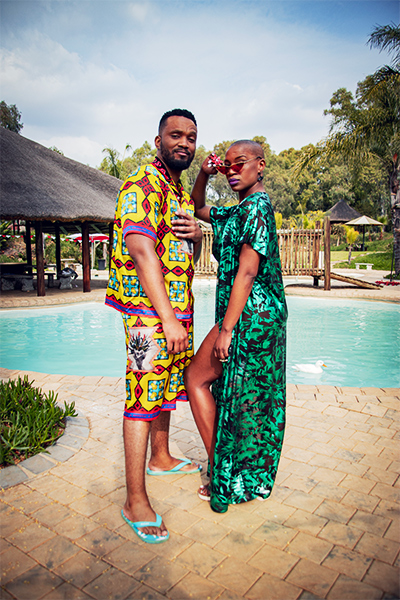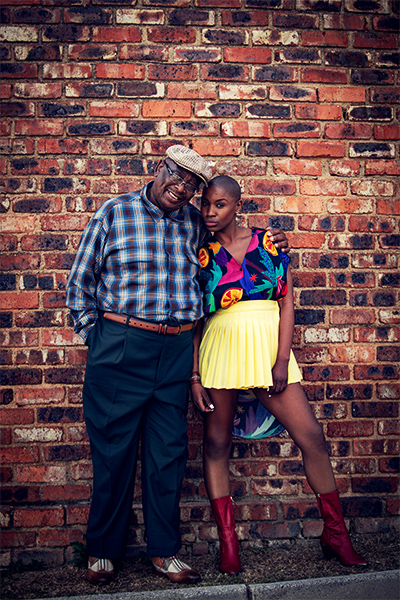African legend: Dorothy Ghettuba
Netflix’s Director of African Original Series talks about her career path into television and empowering African creatives
“This is who we are – and we are fabulous!” Dorothy Ghettuba, award-winning Kenyan TV producer, is feeling joyous about the content she is developing. In her role as Director of African Original Series at Netflix, she is responsible for commissioning exciting new voices from across the continent. “Shows like Queen Sono from South Africa, Far From Home in Nigeria… these are stories about Africa, told by Africans, for Africans. With pride and without apology.”
Ghettuba has always been passionate about storytelling and the power of television to communicate these stories to audiences. When asked about her fondest memories of growing up in ’80s and ’90s Nairobi, her first response is: “Watching television! Obviously, I was like many children, playing out late, and enjoying sports like basketball and hockey. But I really enjoyed watching television! I sat so close to the screen, I needed glasses! Neighbours, Home and Away, Melrose Place, 90210. This is how I travelled to places I had never been, like Australia, LA…”
Ghettuba refers repeatedly to the idea of watching TV shows as a form of travel – “moving between ‘little worlds.’” Television, she says, can be a “joy or a distraction”, but it can also educate people about humankind, about other lives in other places. “How do people all over the world eat? How do they love? This is what me and my team are doing… representing the little worlds we exist in, how different they are. Telling authentic stories… from the world to the world.”

A scene in Far From Home / Image: © Netflix

Despite this love of storytelling, it wasn’t until her early 30s that Ghettuba began her career in the creative industries. Her parents dismissed her plans to go to film school, encouraging a more “financially responsible” career. In her teens she moved to Canada, then to the USA to attend Andrews University in Michigan, where she studied communications and political science. After graduation, she worked in Canada with a venture capital fund. Here, Ghettuba demonstrated a financial acumen that greatly assisted her when trying to secure funding for her first show, Block D.
What prompted her to dramatically change career and move back to Nairobi just after her 30th birthday? Ghettuba explains, recalling two incidents. The first was a visit to Kenya to attend a wedding, when she noticed the local TV station had soared in popularity for broadcasting locally produced content, in Kiswahili (the local name for the language known in English as Swahili, and one of the most widely spoken African languages), for a local audience. “I realised there was power in seeing your people, your experiences and your stories being represented back at you.”
“I want to show the diversity of African experiences ... we have to challenge the simplistic way people have imagined Africa to be”
The second was a car accident that made Ghettuba ask herself a big question: “If today was my last day, would I have lived my best life? And once that answer was known, the follow-up question was: what can I do to change that?”
Ghettuba answered this second question by starting Spielworks Media, a TV production company whose success then also led to producing digital media. “I decided to flip my career”, is how she puts it. She returned to Kenya, famously with just $3,000 to her name, and secured valuable experience working at a local TV station, all the time developing concepts for shows that would achieve her vision: “local for local”, unique content that would tell stories with universal appeal. She says her family and friends were the early investors in this vision. “They supported me, even if they didn’t really understand what I was doing!”

Telling authentic stories: Dorothy Ghettuba / Image: Mighty Fine Productions
Proudly self-taught, Ghettuba spent these early days watching TV as closely as she did as a child, making notes on scripts and timing. After interest – but no investment – from Kenyan TV executives, she scraped together enough funds to produce a pilot for the show that would become Block D, a comedy-drama set in the community of a rundown apartment block in Nairobi. The show was a hit, and within four years Spielworks was producing a raft of dramas and talk shows made in Kenya, telling authentic Kenyan stories and often in Kiswahili. These shows also displayed an African sensibility that led to them being broadcast further afield. Kenyan family drama Lies that Bind, for example, has also been broadcast in Uganda, Ghana, Zambia and Nigeria.
Ghettuba draws a clear comparison between this early success and more a more recent commission for Netflix, How to Ruin Christmas. “We can recognise ourselves in these characters. People say ‘My goodness, my aunt is like this’, or everyone knows the drunk uncle, the family events that go wrong. This is universal, even beyond African culture.”
Her productions went on to win multiple Kalasha Awards (a prestigious annual awards event hosted by Kenya Film Commission), and Ghettuba was named one of the 100 most influential creative personalities by entrepreneurship magazine C.Hub, amongst other accolades. Then, in 2019, she was appointed Manager of International Originals at Netflix.
The streaming monolith has a huge African audience, projected to hit nearly six million viewers by 2026. Showcasing diverse voices and telling authentic stories – stories that evoke those ‘little worlds’ of local experience – are key factors in sustaining the vast viewing figures, as Ghettuba understands. “I want to show the diversity of African experiences. Because it’s like what Chimamanda (Ngozi Adichie, Nigerian author) said about the danger of the single story; we have to challenge the simplistic way people have imagined Africa to be.”
Essential to this, Ghettuba says, is the cultivation of new talent and fresh voices. Licensing existing content and commissioning new shows is important, but there needs to be investment in developing new screenwriters, training new producers and directors. To help this process, Netflix has partnered with the Realness Institute, which helps to nurture new talent from the continent. Ghettuba has recently commissioned a series called Dilemma from a Realness Institute alumnus, Voline Ogutu. “Filmmakers are the vision-holders,” says Ghettuba. “Working with these creatives to achieve their vision, tell their stories, is an immense privilege.”

Between scenes on the set of How To Ruin Christmas / Image: © Netflix – Mosa Hlophe

Cast members from How To Ruin Christmas / Image: © Netflix – Mosa Hlophe
She continues: “I want folks to think big and to dream big and to take creative risks, to imagine things that they would never have thought of doing before in terms of genre or scale. Make them feel like they don’t have to follow a pre-constructed creative path.” Ghettuba then recalls her parents’ initial reaction to her film-school plans, before emphasising that she wants “a creative career to be a commercially viable option” for young people. “I have now the ability to encourage creatives to be proud of their heritage, to tell stories of Africa, by Africans for Africa, and the world beyond. Be proud of your storytelling heritage, you have immense creative talent, lean into that, be excited about the opportunity that exists.”
So, what are her personal favourites from her recent work with Netflix? “Ah, my babies!”, she cries. “So hard to choose! How to Ruin Christmas because it brought such joy to people. Far From Home, because the humour and the characters are just so unapologetic. This is who we are, and we are fabulous, and it’s in every single scene. But then, closer to home, Country Queen. This a show from Kenya about a Nairobi girl going to the rural area she is from. I am very proud of that one, because that’s where I am from.”
Finally, if someone is visiting her hometown of Nairobi for one day, what would she recommend they do? “Go to the Nairobi National Park, because it’s the only national park in a city. Just a two-hour drive and you will see the most amazing flora and fauna. After, go to eat nyama choma (grilled meats) at the Kenyatta Market, and visit the famous record store there, too. And find a Masai market, these open-air markets with the most fantastic clothes and jewellery.”
To finish the day, you could also settle-in to watch one of the great Netflix shows Dorothy Ghettuba has commissioned, experiencing one of the many ‘little worlds’ she has brought to the screen.